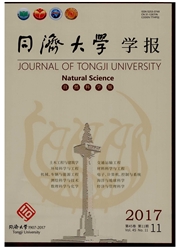

 中文摘要:
中文摘要:
研究了考虑管理盲区影响下的交通管理政策效用.指出交通系统中存在不受交通管理政策影响的管理盲区,并以公务用车为例进行建模分析.首先,分析了政府的交通管理决策目标与出行者的出行选择目标,以缓解交通阻塞、维持区域经济活力作为政府的目标函数,以出行选择效用最大化作为出行者的目标函数,应用Stackelberg博弈模型描述政府及出行者双方的动态博弈平衡.然后,对出行选择效用进行假定,分析了中心区发达与否条件下的模型输出,揭示了公务用车对交通管理政策效用的影响.研究结论显示,对于发达的中心区,公务用车出行比例越高,限制个体交通的管理政策能够起到的效果就越差,且其他出行方式选择的综合效用也会显著降低.
 英文摘要:
英文摘要:
This paper presents an investigation of the utility of transportation management policy by taking into consideration of the impact of blind zone, which is almost free from management measures. A case study was made of the travel by government-owned cars (GOC). The government's objective was formulated as maximum vitality of the urban center and mitigation of traffic congestion. Travelers' objective was to maximize their travel utility. Then Stackelberg game theory was adopted to describe the equilibrium between government and travelers. With assumption of travel utility function, the output of the game model was solved graphically by considering whether the urban center was developed or not. The results show that for a developed center the higher the proportion of travel by GOCis, the less effective the transportation management policy on reducing private car travel becomes and so does the whole transportation system.
 同期刊论文项目
同期刊论文项目
 同项目期刊论文
同项目期刊论文
 期刊信息
期刊信息
